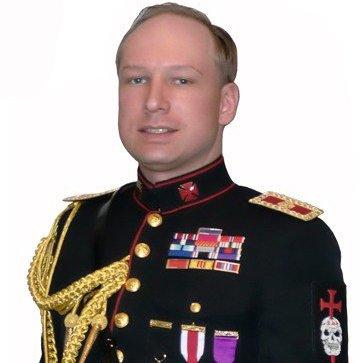The Words that Armed Anders Breivik
Breivik-crop
How much we should blame extreme political rhetoric for the actions of Anders Breivik? Did words help pull the trigger so many times? Is it accurate to describe him as a lone madman, existing outside Norway’s civilized society?
What of Glen Beck who likened Breivik’s victims at a political summer camp to the Hitler Youth? And what might the late Stieg Larsson have thought about this?
This week’s pod attempts to answer some of these questions with a series of reports and interviews culled from the BBC and the Big Show.
Among those featured: Nottingham University’s, Matthew Goodwin who studies fascist groups; former Norwegian diplomat Jan Egeland; Andrew Silke who advises the United Nations on terrorism and has written The Psychology of Counter-terrorism; Nick Fraser who edits the BBC’s Storyville series of international documentaries and wrote The Voice of Modern Hatred, a book about the far right in Europe.
And two more people, each with interesting back stories: Maajid Nawaz, who co-founded the UK-based think tank Quilliam which studies Islamic extremism. Nawaz himself was a self-confessed Islamic extremist: for 13 years, he was a member of Hizb ut-Tahrir. Hizb ut-Tahrir is a global group dedicated to uniting Muslim countries in a caliphate governed by Islamic law.
Lastly, there is Lars Gule of Oslo University College. In the wake of the Norwegian atrocity, he was interviewed by many news organizations including the BBC piece that’s in the podcast. Gule tracks right wing extremists in Scandinavia, and believes that he was in communication via web chat with Anders Breivik. The Big Show also interviewed Gule, but decided against broadcasting the interview because of concerns about Gule’s own past.
In the 1970s, Gule spent several months in a Lebanese prison after being convicted of illegal possession of weapons. The weapons were explosives. Gule was carrying them on behalf of the Democratic Front for the Liberation of Palestine. The intended targets were Israelis.
When asked, Gule was happy confirm these details with us; he’s not trying to hide anything. But it seemed awkward and distracting to have him analyze violent extremism in his own country when he himself had been convicted in part because of his own link to violent extremism in another country. A counter argument might be that Gule, like Maajid Nawaz, has a special insight into such activities. With that in mind, I decided to run the BBC’s interview with Gule. It’s a pity that the interview itself doesn’t make note of Gule’s past.
To round things off, we have a profile of New York-based Ghanaian rapper Blitz the Ambassador. When he moved to the US, Blitz didn’t need to learn English; it’s widely spoken in Ghana. But he says he did have to “learn the lingo of rap.” Which makes Blitz a linguistic as well as a musical ambassador.
